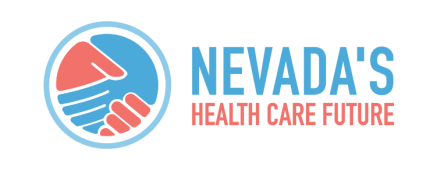Nevada’s Health Care Future Submits Public Comment Regarding Nevada Public Option
CARSON CITY, Nev. — Nevada’s Health Care Future (NVHCF) today submitted a public comment to the Nevada Department of Health and Human Services as part of the agency’s public comment period regarding the implementation of the Nevada Public Option and the state’s revised 1332 waiver application.
Read NVHCF’s comment below:
Dear Administrator Weeks:
Thank you for the opportunity to offer comments on the implementation of the Nevada Public Option and the state’s revised 1332 waiver application. Nevada’s Health Care Future (NVHCF) is committed to working together to ensure every Nevadan has access to the affordable, high-quality health coverage and care they need and deserve.
The evidence continues to show that Nevada Senate Bill 420, which established the Nevada Public Option, will harm Nevadans’ access to affordable, high-quality health coverage and care. Unfortunately, the state’s proposed market stabilization program does nothing to remedy SB 420’s fundamental structural flaws, nor will it shield Nevadans from the negative consequences of implementing SB 420.
When it comes to the underlying policy of SB 420, research clearly demonstrates that the consequences of creating the Public Option, an unaffordable new state government-controlled health insurance system, will be harmful to Nevadans.
Before the state’s revised 1332 waiver application, NVHCF engaged Wakely Actuarial Consulting to perform an actuarial analysis of SB 420. The analysis finds that the 2021 law risks worsening Nevada’s already significant health care provider shortage. Nevada has been suffering from a physician shortage, ranking 48th in the nation in primary care physicians per capita.
Among other key findings, the report warns that the law could also reduce health care competition in Nevada, cause some insurers to exit the market, deter new entrants, put increased financial hardship on hospitals, and ultimately threaten access to care for Nevada patients.
Not only does the state’s revised waiver application do nothing to change the underlying flaws of SB 420, but the revisions themselves – including an attempt to mitigate the burden on providers and carriers through reinsurance, and the softening of premium reduction targets – demonstrate the harmful and burdensome consequences that SB 420 will cause.
Further, the revised waiver application relies on many misguided assumptions, the results of which could prove harmful to Nevadans. Key concerns include:
- With many providers and hospitals already at or close to 100% of Medicare fee-for-service (FFS) reimbursement rates, and without any meaningful drivers contained in this policy to lower the cost of care, there is very little chance of carriers meeting the state’s premium reduction targets.
- The many new requirements and mandates for payers that SB 420 imposes could increase, rather than decrease, administrative costs, depending on factors such as unique network requirements or unique benefit design requirements. Even worse, any reduction in carriers’ required risk margins could pose a significant threat to competition and consumer choice in the state, the complete opposite of the purported objectives of SB 420.
- Particularly in light of the above concerns, the assumption that the creation of Public Option plans will help lower non-public option premiums is deeply misguided.
- The degree to which the waiver ties the procurement process for Medicaid contracts directly to carriers’ submission of Public Option plans for Nevada’s individual market could destabilize the Medicaid program.
- With its revised application the state proposes putting into place a market stabilization program that implements and relies upon the Public Option. Tying the state’s proposed reinsurance program to the creation of the Public Option is a risky strategy, and the facts suggest this is not a viable model for financing the reinsurance program.
Simply put, the revised waiver application does not fix the problems inherent in SB 420’s Public Option provisions. And, given its substantial risk to Nevadans’ health care access and affordability, it is notable that by the state’s own calculations, this proposal would decrease the number of uninsured Nevadans by a mere 2,200 – a result which could be better achieved by private coverage and existing public programs working together.
Since our inception, we have been focused on building on what’s working in health care to improve access rather than starting over. We stand ready to support policy proposals that accomplish these goals. Thank you again for this opportunity to express our serious concerns related to these policy proposals.

